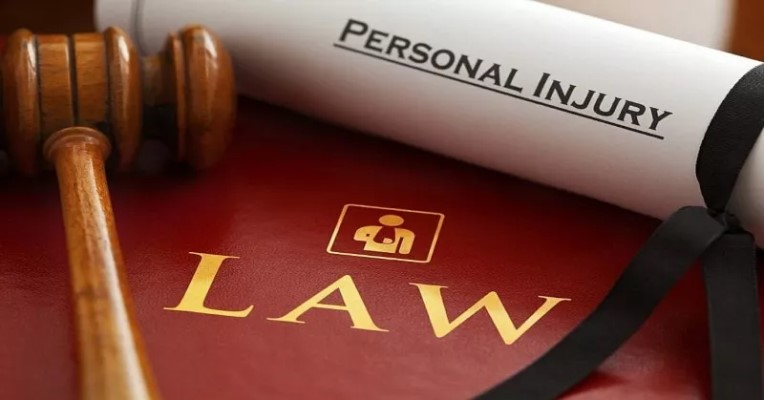In the labyrinth of legalities that govern the modern workplace, the concept of workers’ compensation emerges as a crucial safeguard for individuals who sustain injuries or contract illnesses while performing their job duties. Navigating the intricacies of workers’ compensation law can be a daunting task, often requiring the expertise of a specialized attorney who can ensure that the rights and interests of the injured worker are protected.
This article delves into the realm of workers’ compensation law firms, exploring their role, significance, and offering invaluable insights into the complexities of workplace injury claims.
Workers’ Compensation Law Firms: Protect Your Rights

If you’re injured on the job, you may be entitled to workers’ compensation benefits. These benefits can cover your medical expenses, lost wages, and other costs. However, navigating the workers’ compensation system can be complex and time-consuming.
That’s where a workers’ compensation law firm can help. These firms specialize in helping injured workers get the benefits they deserve. They can assist you with every step of the process, from filing your claim to negotiating a settlement.
When choosing a workers’ compensation law firm, it’s important to do your research. Look for a firm that has.
- Plenty of experience handling workers’ compensation claims
- A good reputation in the community
- A track record of success
- Legal professionals who are committed to helping injured workers
- The resources to help you get the benefits you deserve
Benefits of Hiring a Workers’ Compensation Law Firm
There are many benefits to hiring a workers’ compensation law firm. These benefits include:
- Increased chances of getting your claim approved
- A higher settlement amount
- Less stress and hassle
- Peace of mind knowing that you’re in good hands
- You can focus on your recovery.
If you’re injured on the job, don’t hesitate to contact a workers’ compensation law firm. They can help you get the benefits you deserve.
How to Choose the Right Workers’ Compensation Law Firm
When choosing a workers’ compensation law firm, it’s important to keep the following factors in mind:
- Experience: The firm should have plenty of experience handling workers’ compensation claims.
- Reputation: The firm should have a good reputation in the community for providing quality legal services.
- Success rate: The firm should have a track record of success in getting injured workers the benefits they deserve.
- Commitment: The firm should be committed to helping injured workers get the benefits they deserve.
- Resources: The firm should have the resources to help you get the benefits you deserve.
Workers’ Compensation Lawyer: Understanding Your Options
Within the realm of workers’ compensation law firms, it’s essential to differentiate between two main types of lawyers: solo practitioners and attorneys at larger firms.
Solo practitioners work independently, often handling a wide range of cases. They may offer personalized attention and flexibility but may have limited resources compared to larger firms.
Attorneys at larger firms benefit from a vast pool of resources, including legal assistants, investigators, and medical experts. This can provide broader expertise and support but potentially comes with higher fees.
Filing a Workers’ Compensation Claim
The process of filing a workers’ compensation claim involves several crucial steps:
1. Reporting the injury or illness: Promptly inform your employer about your injury or illness and seek medical attention. This establishes a record of your claim.
2. Filing a claim form: Submit the necessary documentation, such as a First Report of Injury or Illness, to your state’s workers’ compensation board.
3. Investigation and decision: The insurance carrier or workers’ compensation board will investigate your claim and determine if your injury or illness is covered.
Settlement and Negotiation in Workers’ Compensation Cases
In some cases, workers’ compensation claims result in settlements or negotiations:
Settlement: A lump sum payment that resolves the claim in full and eliminates the need for ongoing benefits. This may be appropriate for minor injuries or when there is a dispute about the extent of the injury.
Negotiation: A process where双方讨论并达成协议,无需诉讼。谈判可能涉及医疗费用、失业赔偿和持续护理等问题。
Legal Representation for Complex Workers’ Compensation Matters
Certain workers’ compensation cases require specialized legal representation due to their complexity:
High-stakes claims: Cases involving severe injuries, disabilities, or fatalities may require the expertise of an experienced attorney to ensure fair compensation.
Denied claims: If your claim has been denied, an attorney can represent you through the appeals process and advocate for your rights.
Third-party liability claims: In cases where a third party was responsible for causing your workplace injury or illness, an attorney can help pursue a separate legal claim.
Evaluating Different Law Firm Structures: Solo Practitioners vs. Larger Firms
1. Solo Practitioners:
- Personalized attention and flexibility
- May have limited resources compared to larger firms
- Often handle a wide range of cases
2. Attorneys at Larger Firms:
- Access to a vast pool of resources (legal assistants, investigators, medical experts)
- Broader expertise and support
- Potentially higher fees
Compensation Coverage and Eligibility Criteria
Workers’ compensation benefits vary depending on the severity of the injury or illness:
- Medical expenses, including hospital stays, surgeries, and rehabilitation
- Lost wages, calculated based on your pre-injury income
- Permanent disability benefits, determined by the extent and duration of your disability
Employee and Employer Responsibilities in Workers’ Compensation Claims
Both employees and employers have specific responsibilities in workers’ compensation claims:
- Employee Responsibilities:
- Reporting injuries or illnesses promptly
- Cooperating with the investigation
- Following treatment plans
- Employer Responsibilities:
- Providing a safe work environment
- Reporting injuries or illnesses to the insurance carrier
- Providing necessary documentation




